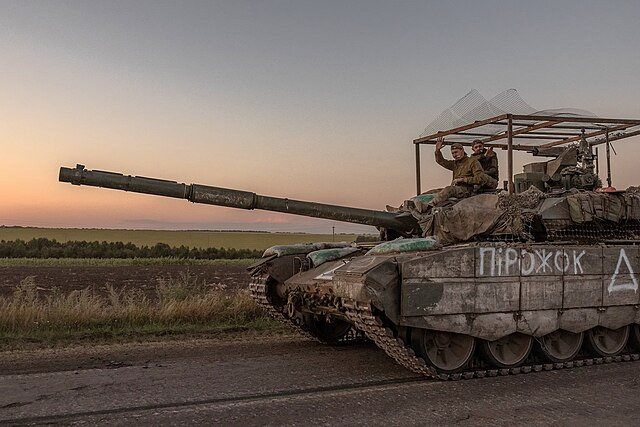Russian forces have reportedly captured a British national fighting alongside Ukrainian troops in the Kursk region, in what could be one of the first known instances of a Western national detained on Russian soil during the ongoing war. The development comes amid intensified military operations by Moscow, with ground forces advancing and daylight drone attacks targeting civilian areas across Ukraine.
The captured fighter, identified by Russian state media as 22-year-old James Scott Rhys Anderson, is a former British Army soldier who later joined Ukraine's International Legion. In a video released by Russian media, Anderson states that he served as a signalman in the British military before traveling to Ukraine to join the fight. The heavily edited footage shows Anderson saying, "I don't want to be here." It remains unclear whether he made the statements under duress.
The UK Foreign Office confirmed it is "supporting the family of a British man following reports of his detention," but declined to provide further details. The Russian Defense Ministry has not commented on the matter.
The soldier's father, Scott Anderson, expressed fears for his son's safety in an interview with the Daily Mail. "I'm hoping he'll be used as a bargaining chip, but my son told me they torture their prisoners, and I'm so frightened he'll be tortured," he said. Anderson also revealed that he had tried to dissuade his son from joining the Ukrainian military, but his son was determined to help Ukraine in its fight against Russian aggression.
The International Legion for the Defense of Ukraine, formed in early 2022 at the request of President Volodymyr Zelenskyy, has attracted thousands of foreign volunteers. While Ukrainian authorities initially reported that more than 20,000 fighters from 52 countries joined the effort, current numbers remain classified. These foreign recruits play a key role in bolstering Ukraine's defenses, particularly in contested areas such as Donetsk and Kursk.
The capture of Anderson comes amid escalating hostilities in the Kursk region. Ukrainian forces launched an incursion into the Russian-controlled area in August, aiming to create a "buffer zone" to prevent future cross-border attacks. Russia has since responded by amassing reinforcements, including nearly 50,000 troops and, reportedly, North Korean forces, according to Ukrainian and U.S. intelligence.
The Kursk operation, the first foreign ground invasion of Russia since World War II, has significantly heightened tensions. Moscow has retaliated with a combination of intensified ground offensives and air strikes. Ukrainian forces, meanwhile, are under increasing pressure in the eastern Donetsk region, where Russian troops have reportedly gained ground at a faster rate than in all of 2023, according to the Institute for the Study of War.
Russia has also stepped up its drone warfare, shifting from nocturnal to daylight attacks. Ukrainian air force officials reported that 145 Shahed drones were launched over the weekend, with most intercepted before causing major damage. However, some strikes reached their targets, including a missile attack on downtown Kharkiv that injured at least 23 people. Kharkiv Mayor Ihor Terekhov said the attack involved a modified surface-to-air S-400 missile and struck a densely populated residential area.
The war, now in its 1,000th day, has entered a phase of heightened violence and shifting tactics. Andrii Kovalenko, head of Ukraine's National Security Council's Counter-Disinformation Center, stated that Russia's daylight drone attacks are designed to "conserve destructive but expensive missiles" while inflicting psychological terror on civilians.
For Anderson's family, the broader geopolitical stakes are secondary to their immediate concerns for his safety. "We're proud of what he stood for," his father said, "but now we're just desperate to know he's safe."




